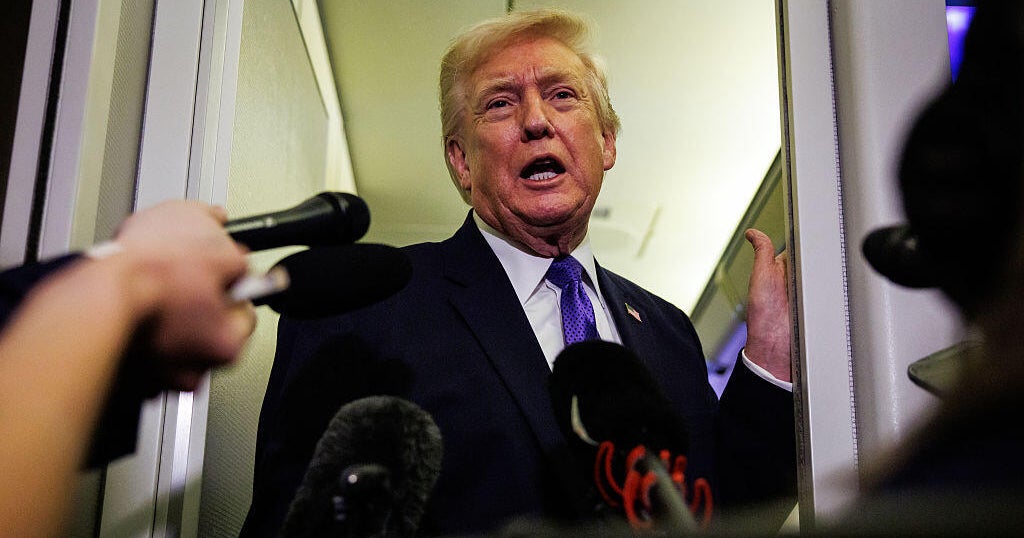Remember "stagflation"? It could make a comeback
Anyone who lived through the 1970s is likely to shudder when they hear the term “stagflation.” That’s the dreadful combination of rising inflation, higher unemployment and a slowing economy that hampered U.S. growth in that decade.
That unappetizing stew of negative trends could return under President-elect Donald Trump’s economic proposals, according to a new report from Goldman Sachs’ (GS) economics team. Stagflation is a possibility under what the firm describes as its “adverse” forecast, based on Trump’s restrictive economic proposals, which include limiting free trade.
With Trump’s surprise win last week, economists have been scrambling to assess what his plans will mean for the near- and long-term prospects of the U.S. economy. Many economists, Goldman’s among them, are developing several scenarios because of what’s viewed as a high level of uncertainty about how Trump might translate his proposals -- such as a 45 percent trade tariff on Chinese imports -- into political reality.
“The positive fiscal impulse from his tax reform and infrastructure proposals could provide a near-term boost to growth and, depending on the specifics, could have positive longer-run supply side effects,” Goldman economists wrote in their report. “However, other proposals could lead to new restrictions on foreign trade and immigration, which could have negative implications for growth, particularly over the longer term.”
Removing the country’s estimated 8 million illegal workers would likely be negative for the U.S. economy. Recent research from Queens College CUNY economists noted that these workers currently contribute about 3 percent of private sector GDP, or about $5 trillion over a decade.
Given the uncertainty over how Trump’s campaign promises will translate into economic policy, the Goldman team ran through three scenarios.
The first considers what Goldman calls Trump’s “full” case, assuming that everything he has promised will be enacted, while the “benign projection” assumes only his fiscal policies are carried out, such as tax reform. The last forecast -- its “adverse” scenario -- includes Trump’s more restrictive trade and immigration policies, as well as a more hawkish Federal Reserve.
Stagflation would be the outcome in the adverse scenario, Goldman noted. Real GDP growth would decline by about 0.8 percentage points in 2018 and 2019, while inflation would rise to 2.3 percent in 2019. Unemployment would rise to 5.3 percent, roughly its level during early 2008 at the start of the recession.
Still, that’s a far cry from the stagflation that crushed many American households in the 1970s, when inflation rose as high as 12 percent and unemployment was above 7 percent. Yet it would represent a setback from the current economic trends of lower unemployment and a stable inflation rate.
Goldman isn’t alone in assessing different economic scenarios under Trump. Oxford Economics on Monday published a report with a similar approach, providing baseline, upside and downside scenarios. Oxford’s downside view sees the economy shrinking by 5 percent by 2020 and losing 4 million jobs.
“Our downside scenario assumes that, after a brief honeymoon period, President Trump reverts to his highly protectionist and isolationist stance,” wrote Gregory Daco, head of U.S. macroeconomics, in the Oxford report. “His refusal to negotiate with Congress means Republicans refuse any increase in the deficit. Global aversion to the U.S. combines with heightened domestic policy uncertainty.”
The president has the executive power to cancel trade agreements (such as NAFTA), impose tariffs and nix some business regulations, but many of Trump’s proposals would need the green light from Congress, such as repealing the Affordable Care Act and on fiscal policies, Daco added.
“And while Republicans hold a majority in Congress, there is no guarantee that Mr. Trump would find common ground in negotiations with members of his own party,” he noted. “Traditionally, elections have reduced political and policy uncertainty, but in this case the uncertainty remains unusually elevated.”



